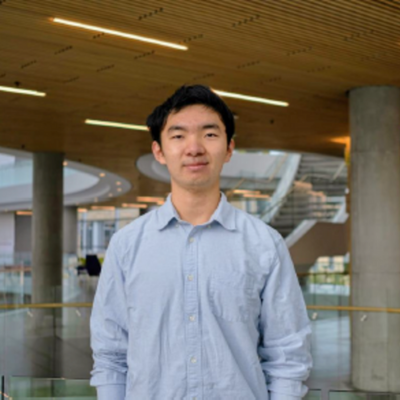 Yiyao Wang
Yiyao Wang
How Asian You Think You Are: The Impacts of Identity Centrality on Model Minority Stress Among East Asians
Advisor: Michael Trujillo
Major: Information Systems
Abstract
The Model Minority stereotype, which portrays Asian Americans as inherently high-achieving, can obscure the stress and mental health challenges it imposes. This study examines how identity centrality, the importance of ethnic identity to one's self-concept, self-construal and immigration status, influences stress responses to stereotype exposure among East Asian college students. By exploring how cultural identity and immigration experience shape responses to stereotype pressure, this research addresses gaps in understanding within-group differences and aims to inform more nuanced mental health interventions for Asian populations.
Bio
I grew up in a city in China where everyday life was shaped by comfort and familiarity. When I came to Carnegie Mellon, I carried that mindset with me, along with the classroom English I had been taught, the jokes that only made sense back home and a deep uncertainty about how I fit into this new world.
During my freshman year, I stayed in my comfort zone: socializing mostly with other international students, studying hard and watching from a distance as others seemed to navigate college life with ease. I wanted to connect more deeply, to explore beyond academics, but I didn't know how. And just when I felt ready to take that first step, I realized I didn't know where to go. I joined Student Senate, thinking it would be similar to student councils in Chinese universities where there's a strong community, only to find it wasn't what I was looking for. Still, I kept trying — joining clubs, attending events, constantly stepping into the unfamiliar — until I eventually found my place.
Sophomore year, while trying to build a startup with friends, I discovered the Undergraduate Entrepreneurship Association at the club fair and joined its executive board. For the first time, I felt a true sense of belonging. I was really enjoying the marketing work and the impacts I could make: revamping our website, growing our event attendance and eventually leading the club as president. But more importantly, the close-knit community there welcomed and supported me. They helped me grow into myself in this new cultural context, not by changing who I was, but by helping me find ways to express the humor and creativity that had always been there.
It was through these experiences navigating different identities and expectations that I began to think critically about how people like me, international students, are often perceived and how we perceive ourselves. I became interested in the ways that stereotypes, like the model minority myth, shape the identities we carry and how central those identities become to our sense of self. This interest, both from my personal experience and academic curiosity, has led me to pursue an honors thesis focused on identity centrality and the model minority stereotype to explore how these dynamics impact well-being, belonging and resilience, especially among students from marginalized backgrounds.
Outisde of academics, I've continued to push beyond my comfort zone: supporting and mentoring new Information Systems students as an IS Ambassador, challenging myself both physically and mentally through the rowing team and engaging in service and philanthropy through Sigma Nu. These challenges have not only helped me grow, but also deepend my commitment to supporting others in navigating similar journeys.
My story has been one of searching, stumbling and slowly finding my way, and through my research, I hope to shed light on the complex paths others walk when balancing identity, expectation and belonging.